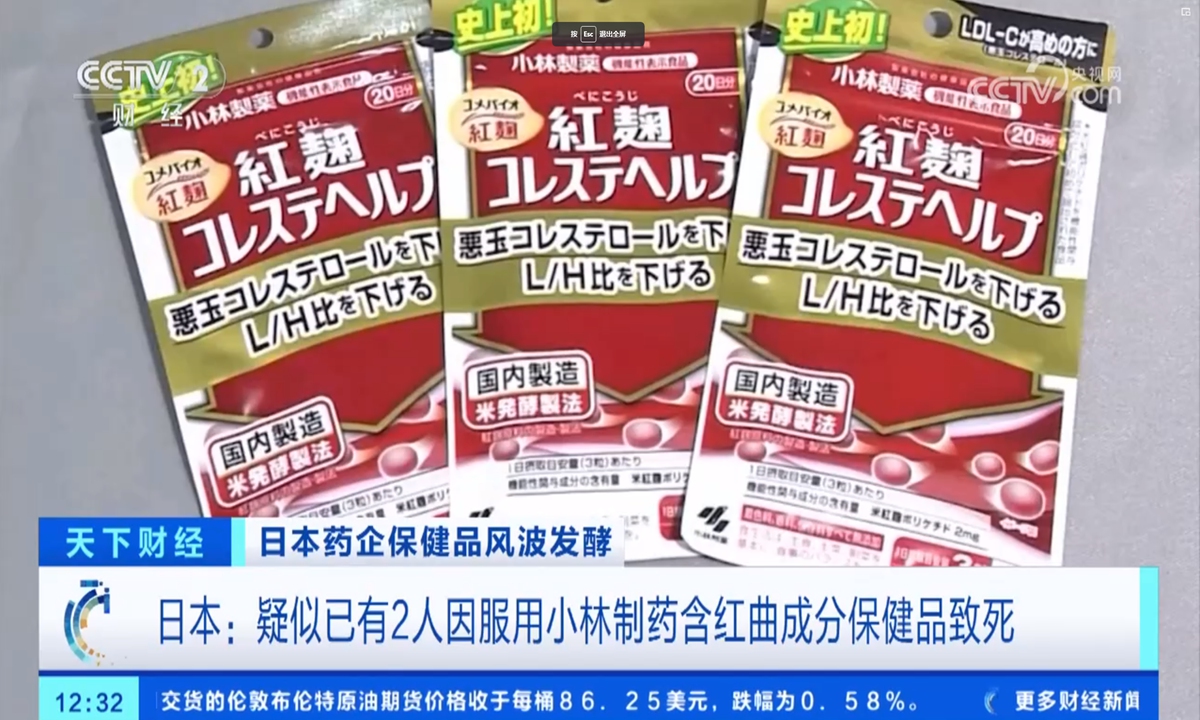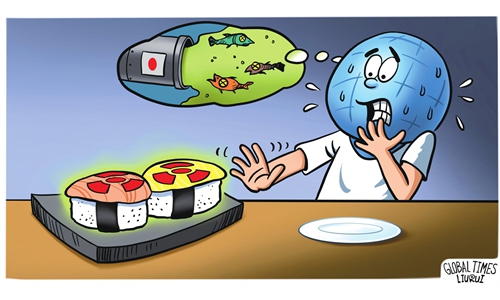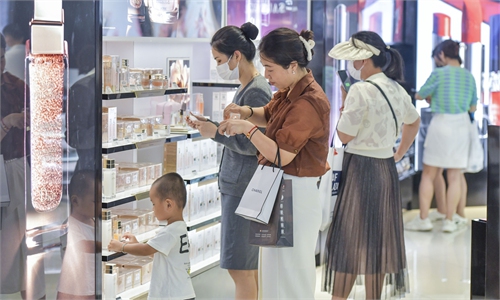Chinese netizens question Japanese medicine quality following deaths linked to drugmaker's health supplements

Photo: Screenshot from CCTV News
Following reports of people dying after consuming health supplements from a Japanese pharmaceutical giant, Chinese netizens have questioned the quality of Japanese medicine, with some saying that it has "fallen off a pedestal." Observers say that this incident will change prevailing "myths" about Japanese products and instead cause people to look at them in a more practical way.
According to the Japanese health ministry on Tuesday, two people died and 106 were hospitalized after consuming red yeast rice dietary supplements from the Japanese drugmaker Kobayashi Pharmaceutical Co, the Kyodo News reported on Wednesday.
The drugmaker said that a person who first began buying the supplement in April 2021 died of kidney disease in February, and the company is investigating the link between the consumption of the supplement and the deaths, the Japan Times reported.
Kobayashi Pharmaceutical has requested all companies supplying its red yeast rice to voluntarily recall products that use the ingredient. The recall affects a wide range of products including sake, confectionery, bread and miso.
According to media reports, the products involved have been removed from domestic e-commerce platforms in China.
Earlier on Friday, the Osaka-based pharmaceutical giant suspected that the cause was an unknown ingredient derived from mold after cases of kidney damage and other health problems following intake of the yeast-fermented rice products were reported, raising fears of health risks linked to the consumption of these products.
The incident has sparked heated discussion among Chinese netizens. On China's X-like platform Sina Weibo, the hashtag "Kobayashi Pharmaceutical's health supplements have caused two deaths and 106 hospitalizations" has earned more than 250 million views as of press time.
Many netizens expressed surprise and anger at the deaths and other health problems caused by the health supplements, while others expressed the impression that Japan's medicine had "fallen off a pedestal."
"I used to believe that Japanese products were extremely trustworthy, and my family often purchased medicine from Kobayashi Pharmaceutical because we thought they were safer. However, this recent incident is truly frightening," one netizen wrote.
Similar comments are flooding Chinese social networking platforms. "So many people are using this Japanese company's medicine, it's really unbelievable that something like this happened." "I used to quite like Kobayashi Pharmaceutical, but I will never dare to use it again in the future."
Analysts have pointed out that Japanese products have long been quite popular among Chinese consumers, with a stereotype of high quality and reliability being associated with them. However, this recent incident may have a negative impact on this perception.
"The event will cause many Chinese people to question the quality of pharmaceutical products from major Japanese companies, such as Kobayashi Pharmaceutical. This may lead Chinese consumers to adopt a more cautious and realistic attitude toward Japanese products," Chen Hong, executive director of Asia Pacific Studies Centre at East China Normal University, told the Global Times on Wednesday.
Chen also noted that the incident has shattered the "myth" that Chinese consumers have about Japanese products, as there is often a belief that imported products, including medicine, are more trustworthy. "The reality has shown otherwise, raising doubts about how imported Japanese products should be viewed," he said.
Some netizens also commented that their feelings about this Japanese pharmaceutical company remind them of their concerns about purchasing Japanese seafood and cosmetics after Japan began dumping nuclear contaminated wastewater into the sea in August 2023.
Due to Japan's dumping plan, Chinese consumers have been growing more resistant to Japanese products, including cosmetics, leading many consumers to draw up "a blacklist" comprising more than 30 Japanese cosmetic products and opting for alternative brands.


